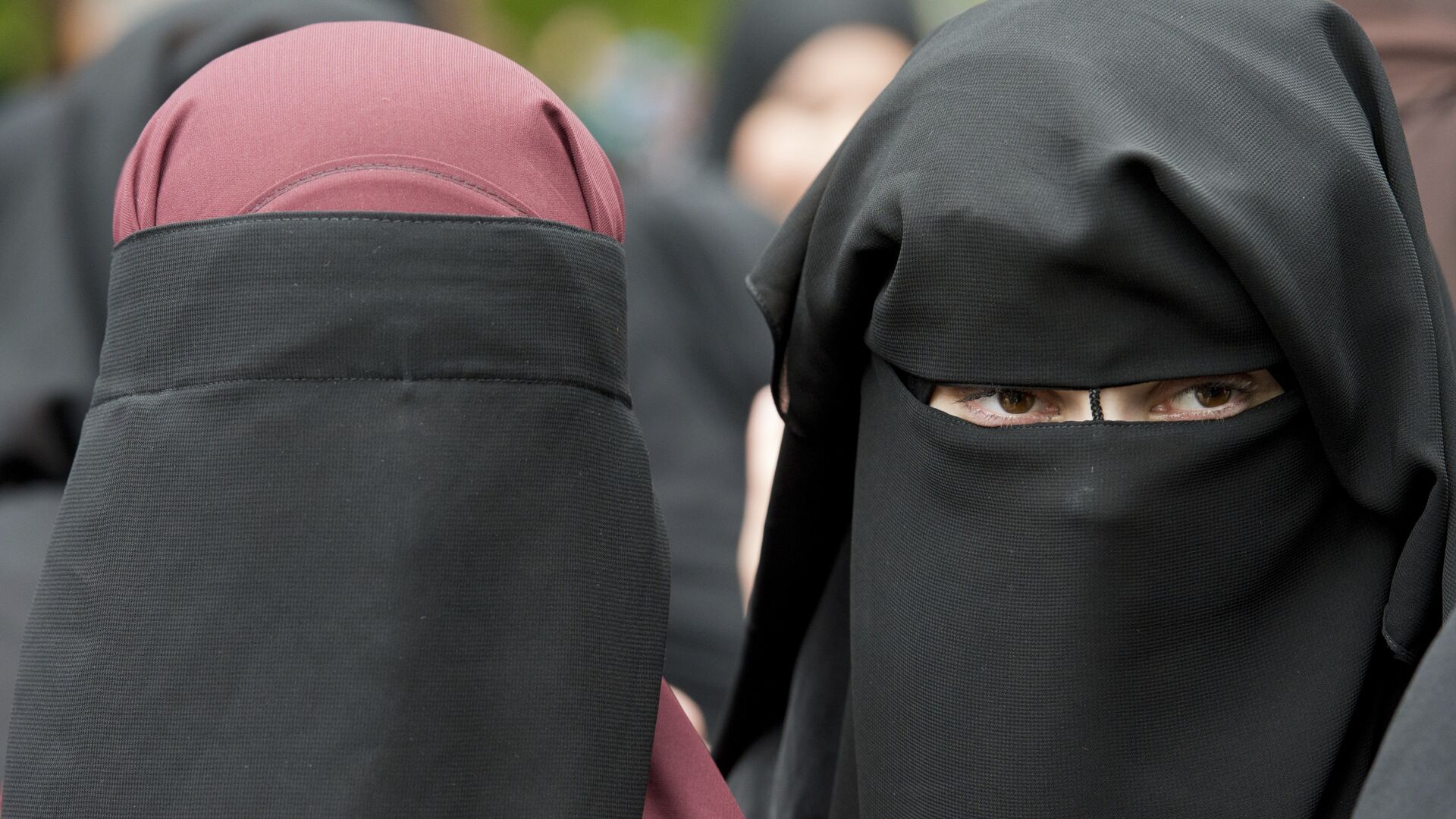French-Algerian businessman and activist Rachid Nekkaz, also dubbed "Zorro of the niqab", has declared intention to pay all fines issued for wearing the niqab - a veil for the face that leaves the area around the eyes clear - throughout Switzerland, reported 20 Minutes.
The announcement was made by the real estate millionaire, who described himself as a "Muslim version of Voltaire" in an interview with the Christian newspaper Kristeligt Dagblad back in 2018, after Swiss voters approved a ban on full facial coverings, including niqab and burqa, in nearly all public places in a referendum on 7 March.
Rachid Nekkaz said Muslim woman in Switzerland should be able to continue wearing the niqab, vowing that his organisation, Defense of Freedom, will pay all the fines for women who do so in Switzerland, as he is already doing in other European countries.
“I am sticking to my commitment to defending freedom of religion and clothing”, said the campaigner, who was born in France to Algerian parents.
It is however specified that the millionaire refers only to the niqab and not to the burqa. The burqa is a full face veil, which Nekkaz considers to be a symbol of the oppression of women.
Rachid Nekkaz already pays for the Niqab buses in the Swiss cantons of Ticino and St. Gallen, as well as in numerous European countries, including France and Belgium.
#NiceTerrorAttack#EidMiladUnNabi#ProphetMuhammad4All
— Danish zehen (@ZehenDansih) October 30, 2020
This is Rachid Nekkaz, a French businessman who announced he will pay all fines for women who are charged with wearing the niqab — not just in France but “in whatever country in the world that bans women from doing so”…. pic.twitter.com/XZ4CuSm3PO
Swiss Islam expert Saida Keller-Messahli has slammed Nekkaz’s actions.
“He thinks he can undo the voting decision with his money. That is presumptuous,” he was quoted as saying by The Local.
Previously, Nekkaz, who in October 2013 renounced his French citizenship in order to run for the 2014 Algerian presidential election, albeit without success, spent thousands of euros to pay for Muslim women’s fines for violating the full Islamic veil ban in Denmark, France, Belgium, and Austria.
Rachid Nekkaz encourageant des femmes à s'habiller en niqab en désobéissance volontaire à la loi. pic.twitter.com/iisPIKo9Xs
— François à contre courant (@FrancoisReac) February 1, 2020
The activist has repeatedly argued that fines and imprisonment were "pure symbolism" that didn't help addressing the "real problems" of radicalization and oppression.
As part of an amnesty by Algerian authorities, opposition figure Nekkaz, jailed without trial since December 2019, and whose health had seen a sharp decline, was released on 19 February 2021.
Controversial Proposal
After the Swiss vote, the full facial coverings, including niqab and burqa, typically worn by Muslim women, will be banned in all publicly accessible places such as on the streets, in public offices, on public transport, in restaurants, shops and in the countryside.
The proposal was support by 51.21 percent of voters and the majority of the country's 26 cantons, according to official provisional results published by the federal government.
Exceptions include places of worship, and will be allowed if worn for health, safety reasons, because of the weather and in "local custom" situations, such as at carnivals, says the text of the proposal. The Swiss cantons now have to adapt their laws within two years.
The proposal, put forward by several groups including the right wing Swiss People's Party, has been criticized by a number of Swiss religious organizations and human rights and civic groups, as well as the federal government itself.
"Today's decision opens old wounds, further expands the principle of legal inequality, and sends a clear signal of exclusion to the Muslim minority," stated the Central Council of Muslims.
The Swiss Federal Council and the Swiss Parliament have tabled a counter-proposal to the ban.
Some critics have pointed to research by the University of Lucerne, according to which almost no-one in Switzerland wears a burqa, with just around 30 women wearing the niqab in Switzerland, where about 5 percent of the population of 8.6 million people are Muslim. Most of the latter originate from Turkey, Bosnia and Kosovo.
The Swiss referendum comes 12 years after another referendum in the country had outlawed the construction of minarets.
Bans, partials bans and local bans of face coverings are already in place in several European countries, including France, Germany, Belgium, the Netherlands and Denmark. France was the first to ban burqas and niqabs in public spaces in 2011.




